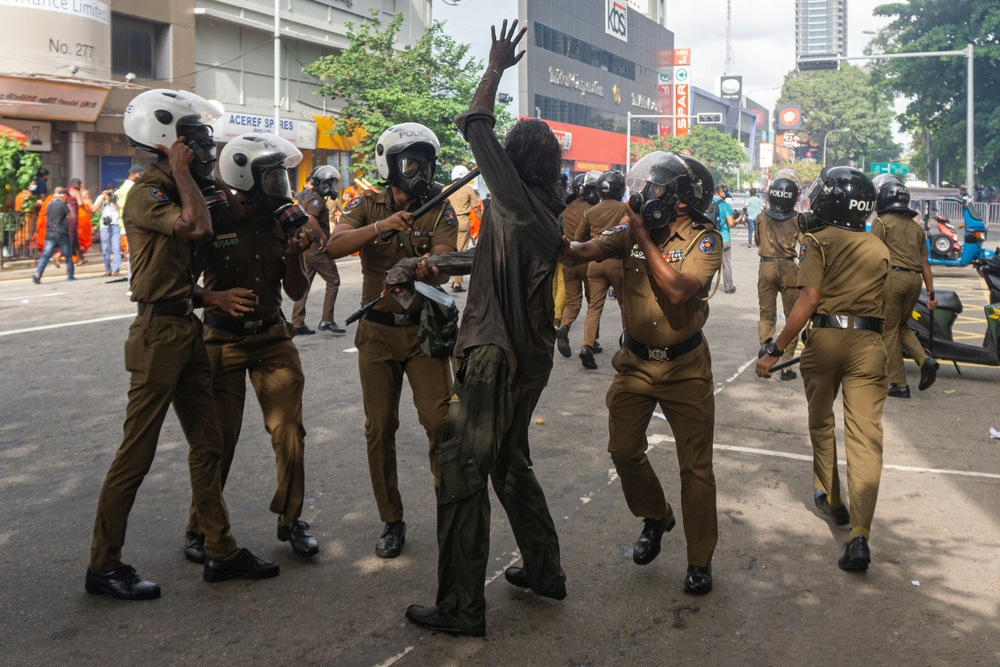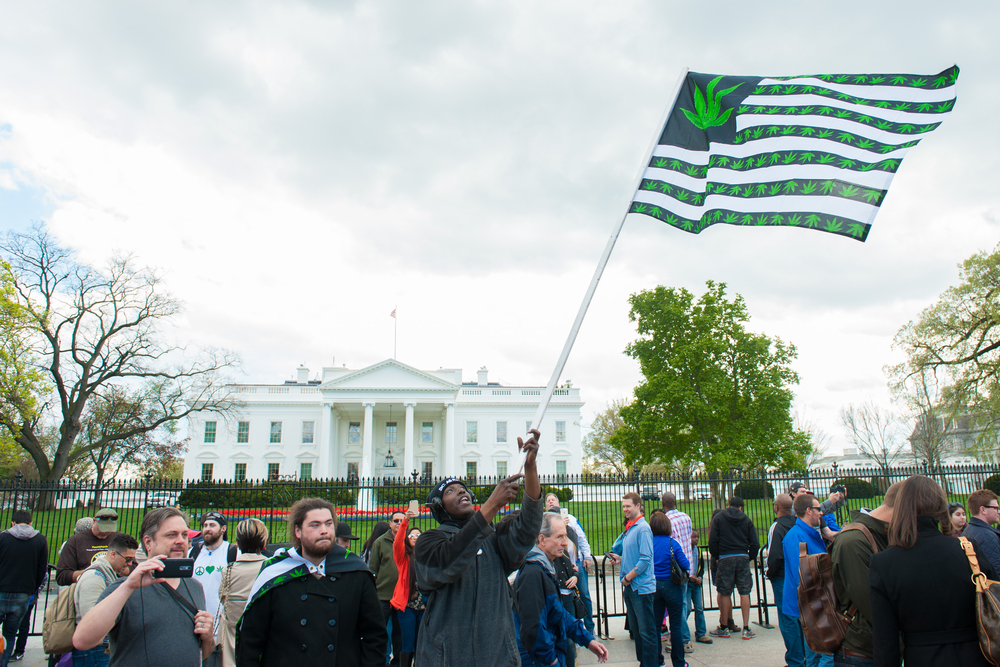Tied outside to trees for days, starved, beaten, and humiliated. This is the reality for detainees inside Sri Lanka’s compulsory drug rehabilitation centres. The rehabilitation centres, jointly run by the military and the Ministry of Justice, are just one of the many tools used to enforce a punitive drug war on this island nation.
An intrepid escape in 2022 by hundreds of detainees, following the death of an inmate who was beaten to death by military officers working in the Kandakadu Rehabilitation Centre, highlighted the brutal reality faced by those in “treatment”.
“I asked for medication and I was beaten up,” one of the interviewed escapees said to a journalist. “We are suffering inside. Please send us to jail,” another shared.
These centres are one part of a holistically cruel approach to drug use and trafficking in Sri Lanka which has led to numerous accusations of the state violating human rights.
What is Operation Yukthiya?
“For the last several years, Sri Lanka has adopted a militarised approach to drug control and treatment,”, Ambika Satkunanathan, a human rights lawyer and activist based in Sri Lanka, told TalkingDrugs.
Operation Yukthiya, which translates to “justice” in Sinhala, was the culmination of an intense militarised effort to control drugs and the Sri Lankans that use them. Beginning on 17 December, the operation arrested at least 29,000 people that were somehow involved in the drug trade, with an additional 1,500 people in detention pending further investigations. At least 1,600 more persons were sent to compulsory drug rehabilitation.
Sri Lanka has a long history of strict drug consumption laws, with users facing life imprisonment or the death penalty for being caught just with five grams of heroin.
The operation has been criticised by both the UN Human Rights Agency as well as a joint statement from Human Rights International (HRI) and over 30 other human rights and harm reduction groups from around the world.
According to the statement, the operation carried out “arbitrary arrests, primarily against individuals from marginalised socio-economic communities; searches conducted without warrants or reasonable suspicion; and degrading treatment including strip searches in public as well as cavity searches.” According to the UN Humans Rights Office, police forces carried out raids without search warrants, while those arrested have been “subjected to ill-treatment and torture.”
In addition, a recent change in Sri Lankan law to the Poisons, Opium and Dangerous Drugs Ordinance law, means those arrested are held on a non-bailable offence. In conjunction with a dysfunctional judicial system, this means those arrested may be held for months without due process.
Targeting the poor
Sri Lankan politicians have framed the drug war as an existential crisis, comparing the severity of the country’s drug problem to the previous thirty-year civil war. Sri Lankan Public Security Minister Tiran Alles stated the operation has successfully taken down a smuggling network stating their aim was to “dismantle the very web that distributes these poisons” as they declared war on the dangerous criminal underworld. Alles added that concerns about the “abuse of women and children” – most likely as a result of these police operations – would be addressed by setting up a hotline staffed by female police officers.
In the weeks prior to Operation Yukthiya, President Ranil Wickremesinghe said that drug trafficking and “other underworld activities” would be eradicated from the country, regardless of international influence, to ensure that “future generations can live without fear or doubt.”
“Users and people who are dealing or at the lower end of the trafficking hierarchy” were targeted in the operation according to Satkunanathan, not key players in Sri Lanka’s drug trade as suggested by politicians. The arrests made were instead primarily targeting mainly poor communities: while the operation supposedly targeted drug trafficking, only 70kg of heroin have been seized.
But Satkunanathan told TalkingDrugs that this is “barely a drop in the ocean, [which] shows who they are targeting or who they’re targeting visibly” – low-level users, not traffickers, are bearing the brunt of the violence.
These violent measures and punitive approach to drug control is a reminder of the brutal drug war waged in the Philippines by President Duterte, where over 6,000 civilians were executed in extra-judicial killings during his presidency. The legacy of his presidency lives on through repressive Filipino drug policies; and while the scale of death is not yet the same in Sri Lanka, it is cause for concern. The former Sri Lankan President Maithripala Sirisena praised Duterte’s approach to drugs in 2019 and planned to copy it: Operation Yukthiya seems like this desire came to life.
Decaying prison and brutal rehabilitation
Before Operation Yukthiya, the prison and drug rehabilitation infrastructure in Sri Lanka was already in crisis.Prisons are reportedly near 200% overcapacity, and in deteriorating conditions: a 2020 study by the Sri Lankan Human Rights Commission revealed prisons were literally crumbling, with walls and ceilings missing pieces, and inmates having very limited access to water and toilets. Overcrowding was so bad that some inmates had to sleep standing. Cockroaches, mosquitoes and bedbugs were common sights, and festered in unbearably hot summers. Access to food is also limited with inmates often given rotten vegetables, not fit for cats and dogs according to one inmate.
All this surmounts to, as the report concludes, “inhumane living conditions” in the prisons, which are only set to get worse. Sri Lankan Police have already announced last Sunday that they seek to arrest another 40,000 people through the ongoing operation.
Prison officers mostly keep order through violence, Satkunanathan told TalkingDrugs. A new influx of inmates is likely to bring “more tension, and then there’s more likelihood that the officers will resort to violence.”
Prison better than rehabilitation
As the escaped rehabilitation inmates from Kandakadu noted, the prison environment was preferred by some than what awaits them in rehabilitation centres. A 2017 UN report revealed the centres are more akin to prisons as detainees are forced to wear uniforms, locked in with barbed wire and heavily armed military officials. These centres suffer similar overcrowding issues, Satkunanathan confirmed with TalkingDrugs. A sudden influx of people could have a similar destabilising effect that’s likely in the prisons. Treatment centres are abstinence-based, with no access to methadone or any other harm reduction interventions. “There is no access to medical care, even during withdrawals,” Satkunanathan told TalkingDrugs. Patients are routinely punished: they’re “subjected to violence, and violence is everyday and commonplace.”
In one extreme case in 2022, four military officers were arrested after beating a man to death at Kandakadu Rehabilitation Centre.The fact that Sri Lankan police operations would continue despite any international condemnation spells a dangerous period for people who use drugs in Sri Lanka. Not only are they abandoned within prisons and supposed “rehabilitation centres”, they are scapegoated by the media and politicians for social issues. This wave of violence and arrests is not the beginning, nor the end, of the systematic mistreatment and imprisonment of people who use drugs the prison and rehabilitation centres appear on the brink of collapse.


